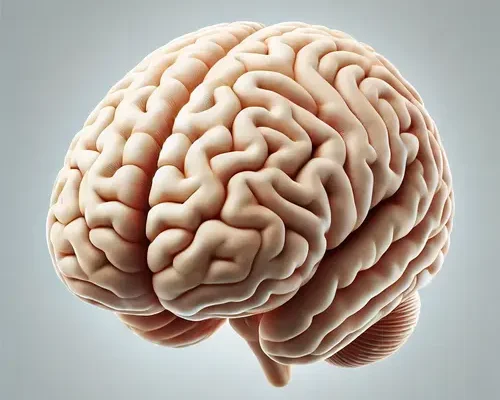Case Start: Imagine this: Michael, a 42-year-old project manager, is sitting at his desk when suddenly the room starts spinning. He’s felt occasional dizziness before, but this time it’s more intense, leaving him disoriented and unsure of what’s happening. His immediate thought is to dismiss it as stress or lack of sleep, but could it be something more serious? Dizziness isn’t just an inconvenience—it can be a sign of deeper issues with brain health.
Symptom Breakdown:
Dizziness can manifest in different ways and be linked to various underlying conditions. Here are some symptoms associated with dizziness that could indicate a potential problem with brain function:
- Vertigo: A spinning sensation, even when standing still, can suggest an issue with the brain’s ability to balance.
- Lightheadedness: Feeling faint or as though you’re going to pass out can be related to reduced blood flow to the brain.
- Disorientation: Not knowing where you are or feeling detached from your surroundings could signal cognitive dysfunction.
These symptoms often come and go, but if they persist, they may be connected to more significant issues involving brain health, such as problems with circulation, nerve function, or neurological disorders.
Diagnostic Path: What Causes Dizziness in the Brain?
Dizziness is a common symptom that can have a variety of causes. To understand the connection between dizziness and brain health, it’s important to consider the following potential factors:
- Poor Blood Flow to the Brain (Cerebral Hypoperfusion): When the brain doesn’t receive enough blood, dizziness can occur. This can be caused by cardiovascular issues, such as high blood pressure or atherosclerosis, where arteries narrow and restrict blood flow.
- Vestibular System Disorders: The inner ear plays a key role in balance, but it’s directly connected to brain function. Issues with the vestibular system, like Benign Paroxysmal Positional Vertigo (BPPV), can cause the brain to misinterpret signals, leading to dizziness.
- Neurological Conditions: Conditions such as multiple sclerosis or Parkinson’s disease affect nerve function and can lead to frequent dizziness. In these cases, dizziness is often accompanied by other neurological symptoms such as tremors or muscle weakness.
- Stroke or Transient Ischemic Attack (TIA): Dizziness can be an early warning sign of a stroke or TIA, where a temporary lack of blood flow to the brain causes sudden, intense dizziness, often accompanied by slurred speech or vision problems.
Deep Dive: Dizziness and Brain Function
Dizziness often has a direct connection to brain health because the brain is responsible for processing the signals that help us balance and move through space. When these processes are disrupted—whether due to blood flow issues, nerve damage, or miscommunication between the brain and inner ear—dizziness occurs.
For instance, condi
tions like vestibular migraines can confuse the brain’s balance centers, leading to episodes of dizziness even without headaches. On the other hand, poor circulation, often due to cardiovascular issues, can starve the brain of oxygen and nutrients, causing lightheadedness and confusion. Identifying the root cause of dizziness is essential to protect long-term brain health.Treatment Comparison: Addressing Dizziness and Brain Health
Addressing dizziness effectively depends on pinpointing its cause. Here are common approaches based on the source of the problem:
- Improving Circulation:
- Cardiovascular health is key to preventing dizziness related to poor blood flow. Regular exercise and a healthy diet can promote heart health and maintain proper blood flow to the brain.
- Stay hydrated: Dehydration reduces blood volume, which can trigger dizziness. Drinking enough water throughout the day helps prevent this.
- Addressing Inner Ear Issues:
- For those with BPPV or other vestibular disorders, specific physical therapies like the Epley maneuver can help reposition particles in the inner ear and alleviate vertigo.
- Medications to reduce inflammation in the inner ear can also help reduce dizziness related to vestibular problems.
- Neurological Treatment:
- If dizziness is linked to neurological conditions like multiple sclerosis, treatment typically involves medications that manage the underlying condition and reduce inflammation in the nervous system.
- In cases of stroke or TIA, immediate medical attention is critical to restore blood flow to the brain and minimize lasting damage.
Outcome Story: A Return to Stability
For Maria, a 36-year-old graphic designer, episodes of dizziness began happening several times a week. After consulting with her doctor, she learned she had a vestibular disorder linked to her inner ear. With the help of targeted exercises and a focus on improving her overall health, her symptoms began to decrease. Now, she’s able to go about her day without the constant worry of unexpected dizziness.









